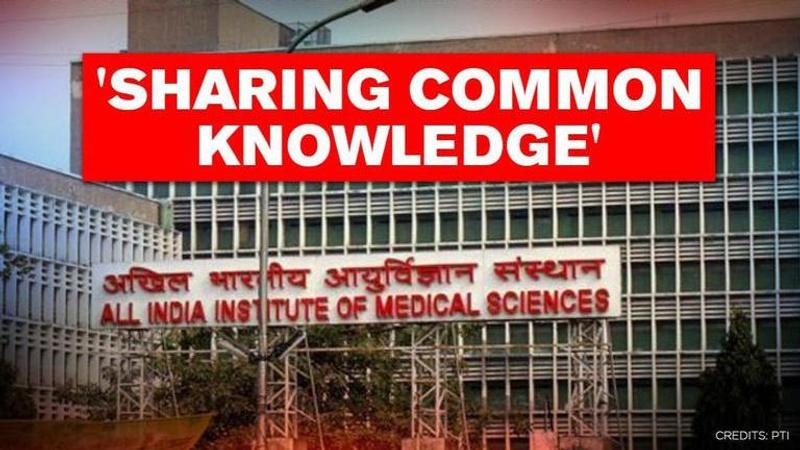Published 17:06 IST, July 20th 2020
AIIMS Delhi holds 'e-ICU' video consultation program with 43 institutions in the country
As per an official statement, four e-ICU sessions have been held to date covering 43 institutions in 11 states and regions across the country

In order to bridge the information gap between the healthcare facilities regarding the novel Coronavirus disease, the All India Institute of Medical Science (AIIMS) in New Delhi has been regularly holding e-ICU video-consultation programs with hospitals across the country. As per an official statement, four e-ICU sessions have been held to date covering 43 institutions in 11 states and regions across the country including Mumbai, Goa, Delhi, Gujarat, Telangana, Assam, Karnataka, Bihar, Andhra Pradesh, Kerala, and Tamil Nadu.
"The primary objective of these discussions is to reduce mortality from COVID-19 by learning from shared experience and strengthening best practices among hospitals with 1000 beds including isolation beds, oxygen supported and ICU beds," the Ministry of Health and Family Welfare said in a statement on Monday.
'Discussing investigational therapies'
The e-ICU video-consultation programs are designed to provide a professional platform for case-management discussions among doctors who are at the frontline in treating COVID-19 patients along with helping sharing of knowledge and common know-how with other physicians and experts from AIIMS, New Delhi.
"Some of the important issues that have been stressed upon are the need for rational use of 'investigational therapies' like Remdesevir, convalescent plasma, and Tocilizumab. The treating teams have discussed the current indications and possible harm due to their indiscriminate use and the need to limit social-media pressure based prescriptions," said the official statement.
The Ministry also said that issues like the need for repeat testing, admission and discharge criteria, management of post-discharge symptoms, and return to work were also discussed upon during these consultations. "Some of the other common concerns have been the methods of communication with patients, screening of health-care workers, managing new-onset diabetes, uncommon presentations such as stroke, diarrhoea, and myocardial infarction, etc," the Ministry stated.
(With Agency Inputs)
Updated 17:06 IST, July 20th 2020




